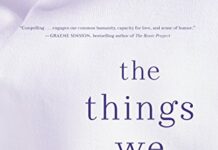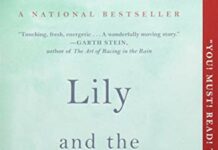
Ebook Info
- Published: 2016
- Number of pages: 435 pages
- Format: Epub
- File Size: 2.16 MB
- Authors: Luke Dittrich
Description
In 1953, a twenty-seven-year-old factory worker named Henry Molaison—who suffered from severe epilepsy—received a radical new version of the then-common lobotomy, targeting the most mysterious structures in the brain. The operation failed to eliminate Henry’s seizures, but it did have an unintended effect: Henry was left profoundly amnesic, unable to create long-term memories. Over the next sixty years, Patient H.M., as Henry was known, became the most studied individual in the history of neuroscience, a human guinea pig who would teach us much of what we know about memory today.
Patient H.M. is, at times, a deeply personal journey. Dittrich’s grandfather was the brilliant, morally complex surgeon who operated on Molaison—and thousands of other patients. The author’s investigation into the dark roots of modern memory science ultimately forces him to confront unsettling secrets in his own family history, and to reveal the tragedy that fueled his grandfather’s relentless experimentation—experimentation that would revolutionize our understanding of ourselves.
Dittrich uses the case of Patient H.M. as a starting point for a kaleidoscopic journey, one that moves from the first recorded brain surgeries in ancient Egypt to the cutting-edge laboratories of MIT. He takes readers inside the old asylums and operating theaters where psychosurgeons, as they called themselves, conducted their human experiments, and behind the scenes of a bitter custody battle over the ownership of the most important brain in the world.
Patient H.M. combines the best of biography, memoir, and science journalism to create a haunting, endlessly fascinating story, one that reveals the wondrous and devastating things that can happen when hubris, ambition, and human imperfection collide.
User’s Reviews
Review “An exciting, artful blend of family and medical history.”—The New York Times“In prose both elegant and intimate, and often thrilling, Patient H.M. is an important book about the wages not of sin but of science. It is deeply reported and surprisingly emotional, at times poignant, at others shocking. . . . A scintillating book, infused with humanity.”—The Washington Post “Spellbinding . . . The fact that Dittrich looks critically at the actual process of scientific investigation is just one of the things to admire about Patient H.M.”—The New York Times Book Review “Astonishingly insightful . . . A fascinating story in its own right to anyone interested in the history of modern science’s attempts to understand the causes of mental illness along with the many botched attempts to treat it . . . [Patient H.M.] is indeed about memory, madness, and family secrets and, in that sense, about the paths that shape the core of the self, in each and every one of us.”—Psychology Today“Beautifully told . . . a book that will rank with Rebecca Skloot’s The Immortal Life of Henrietta Lacks in the realm of outstanding medical ethics narratives.”—Associated Press “Dittrich’s account raises entirely new questions about the way in which the research on H.M. was conducted—and about the conclusions that have long been incorporated into our understanding of memory.”—New York Magazine “Remarkable.”—Wired“Oliver Sacks meets Stephen King in a piercing study of one of psychiatric medicine’s darker hours. . . . A mesmerizing, maddening story and a model of journalistic investigation.”—Kirkus Reviews (starred review)“At the heart of this breathtaking work . . . is [Luke] Dittrich’s story of his complicated grandfather, his mentally ill grandmother, and a long-held family secret, with Molaison stranded ‘where the past and the future were nothing but indistinct blurs.’”—Publisher’s Weekly (starred review) “The machinations of scientists and researchers—their personality and ambition, power and hubris—are of equally vital (and cautionary) importance in Dittrich’s unusual and compelling mix of science and family history.”—Booklist (starred review)“Patient H.M. tells one of the most fascinating and disturbing stories in the annals of medicine, weaving in ethics, philosophy, a personal saga, the history of neurosurgery, the mysteries of human memory, and an exploration of human ego. A monumental contribution to our understanding of medical research, and of ourselves, Patient H.M. is sweeping, meticulous, and seamless—with an ending that, like the best of scientific investigations, challenges everything that came before it.”—Sheri Fink, M.D., Pulitzer Prize winner and author of Five Days at Memorial
Reviews from Amazon users, collected at the time the book is getting published on UniedVRG. It can be related to shiping or paper quality instead of the book content:
⭐ I enjoyed reading Luke Dittrich’s book entitled “Patient H.M.: A Story of Memory, Madness, and Family Secrets.” This book combines a great story about the celebrated patient Henry Molaison with factual knowledge about the brain. The personalities involved in the story were intriguing, from a great surgeon and his grandson to recent scientists battling over control of tissue samples and data. I found reading about the personal struggles helpful to understand the scientific road taken. I also enjoyed the interspersed facts about brain anatomy and some of the peculiarities of the approaches and lives of neurosurgeons and neuroscientists, such as how we somewhat haphazardly get at the seat of memory and how we disentangle key concepts such as semantic memory.Despite being an overall interesting book, I definitely felt Dittrich took it “to the edge” with some of his points about Suzanne Corkin’s treatment of Henry Molaison’s brain, his famous grandmother, and the operations he performed. I wonder whether these highly controversial points are backed up by robust factual research. Nonetheless, the book was thought-provoking and enjoyable to read.
⭐ This book was absolutely INCREDIBLE. I cannot praise it enough. Anyone who is interested in bioethics and neuroscience should read this book. It takes a huge amount of bravery from an author to write about something so very close to his own family, and be honest enough to admit his grandfather who performed lobotomies including one on Patient HM (when you are in Neuroscience like I was you never quit hearing about Patient HM). One reviewer said this book was written in anger…I don’t think so. If he was angry, it was more about what his grandfather did to his grandmother (they don’t know what operation he did on her). And I would agree with Dittrich, that his grandfather’s penchant to perform psychiatric surgery was ridiculous. I think one of the best parts of this book was the revelation that his grandmother not only divorced this man, but went on to gain a couple of degrees and work with children the rest of her life. Kudos to her.But I see other emotions about Dittrich’s grandfather. Confusion, pride for what Scoville did right, acknowledgement of his foibles, and some love maybe leftover from when Dittrich was a child, and looked up to this man. None of us have absolutely perfect fathers or grandfathers, but we still often have mixed feelings about them when we grow older.What really bothered me was the attitude not just of Scoville towards others, but so many of that generation. I’m boggled at the idea that they were still doing lobotomies in the 1970’s, but it didn’t surprise me. They were still sterilizing people like me who were disabled (I’m Deaf) in the 1970’s. Eugenics was alive and well even then, and what’s scary is the powers that be in politics, are working to make eugenics come back. Besides that, all the talk of implants in people for whatever reason, raise all kinds of bioethical flags.This is absolutely required reading if you want to know about HM. I actually think I was less mad about Scoville who gave Henry his condition of memory loss, than I was at the female psychiatrist who destroyed records on what they did to him, and took back his brain from whom they asked to slice his brain into something they could study…because the man obviously had another lesion which Scoville didn’t do. All so she could protect her blasted reputation. That isn’t science, and if she’s still alive, she should be removed from her position, and probably have her license taken away from her. Totally bad behavior on the part of a scientist in the US. We hold our science to a lot higher level…and she broke all the boundaries of decent behavior!
⭐ Difficult to research with the resistance of a major figure in the story. A very good job in spite of it.You can see almost firsthand the incredible arrogance of a doctor who blindly removes vital parts of the brains of fellow human beings and what they are left with. And while he is hoping to cure terrible problems, he almost seems more interested in finding out the function of parts of the brain and where memory is lodged.It is a clever mystery, a medical tretise, a human story. It is also a terrible, frightening story if you think of poor H.M.All very interesting, however.
⭐ This was the first book I’ve read on a tablet. It’s not my favorite way to read. However, the actual story was fascinating and a part of health care that I was not aware of. Recommend this book to anyone interested in the history of health care, in general, and brain health, in particular.
⭐ Dittrich’s account of Patient H.M.–as well as the scientific debate and professional intrigue that surrounded his tenure as a research subject–is in turns riveting, unsettling, and deeply infuriating. It is well-written and excellently researched. At the end, I found myself glad that this testament to the people involved in crafting H.M.’s story exists–that there will always be, in writing, an account that examines the motives of the people who have claimed ownership of H.M.’s brain and legacy. Science is, after all, conducted by humans.
⭐ SO INTERESTING. It’s amazing what the human brain can do (or can’t do) and when people try to mess with it, it makes it even more interesting. I have recommended this book to my students before and I have read portions of it in class. They even wanted to use some of the tests described in the book in a science fair showcase we had. Incredible story.
⭐ The delivery of the item was timely and the condition of the book exceeded my expectations. It turned out to be a first edition which was essentially in like new condition with no markings in the book itself and the book had a pristine cover with no tears or scuffs.Of the many hundreds of books I’ve read over a great many years, this one happens to stand out as one of the 10 or so best I’ve ever read. This is partly because the book matches up with my interests and experiences, but most of the credit is due to the talent of the author to deliver the goods on a topic for which he is uniquely qualified to write about. His willingness to reveal and speak honestly about the behavior and decisions of a member of his own family and close friends of the family in how they handled the ethics of treating humans essentially as unwitting lab animals is extraordinary.It seemed obvious to me that the author, Luke Dittrich, was emotionally and intellectually engaged in writing this book.Of special note is Mr. Dittrich’s commendable ability to distill relatively complex anatomical and medical topics into understandable layman’s terms, while staying true to what those technical representations are actually describing. I myself had a pneumoencephalogram diagnostic test performed on me over 45 years ago to probe the possibility of a suspected brain tumor. Those were the pre-CAT scan and Pre-MRI scan days. The test was a gosh-awful, inhumane, abusive test. None of the people administering the test on me appeared to have a clue as to how it felt for me to undergo that test. I dearly wish that they had the opportunity to read the couple of detailed pages that Mr. Dittrich devotes to relating what that experience is like. Mr. Dittrich does a similarly riveting job of explaining a variety of other technical things and concepts throughout the book.He lays out the facts for the reader and allows the reader to develop his/her own conclusions about what they would have done if faced with the same ethical dilemmas characterizing the patient, H.M., both in life and after that life became a scientific afterlife that – of course – has now taken on a life of its own. The entire story is full of intrigue, justifiable outrage, and leaves room for plenty of speculation about what you would have done in the same circumstances.Get a hold of the book. Read it. But, most importantly, think about what you have read. Digest it. Discuss it. Delight in the experience.
⭐ While this story was a bit dry and drawn out in places, it was a detailed history of brain surgery and surgeons. Very informative and precise. Touching and compassionate for patient H.
⭐ The author tells the story of patient HM, Henry, and is able to interleave the medical procedures and storytelling together. The surgeon, the researchers and the patient all become living human beings – each driven by their own perspective of their individual worlds. On the part of the surgeon and researchers, it exposes their hubris. As for Henry, it poignantly portrays his isolation and bewilderment at living life continually trapped only in the immediate present with no past and no future.
⭐ Very sad and clearly honest story of a man reduced to lab specimen for 50+ years of his life. Even through death his brain was squabbled over as if he was a possession and not a human being.
Keywords
Free Download Patient H.M.: A Story of Memory, Madness, and Family Secrets in Epub format
Patient H.M.: A Story of Memory, Madness, and Family Secrets Epub Free Download
Download Patient H.M.: A Story of Memory, Madness, and Family Secrets 2016 Epub Free
Patient H.M.: A Story of Memory, Madness, and Family Secrets 2016 Epub Free Download
Download Patient H.M.: A Story of Memory, Madness, and Family Secrets Epub
Free Download Ebook Patient H.M.: A Story of Memory, Madness, and Family Secrets





